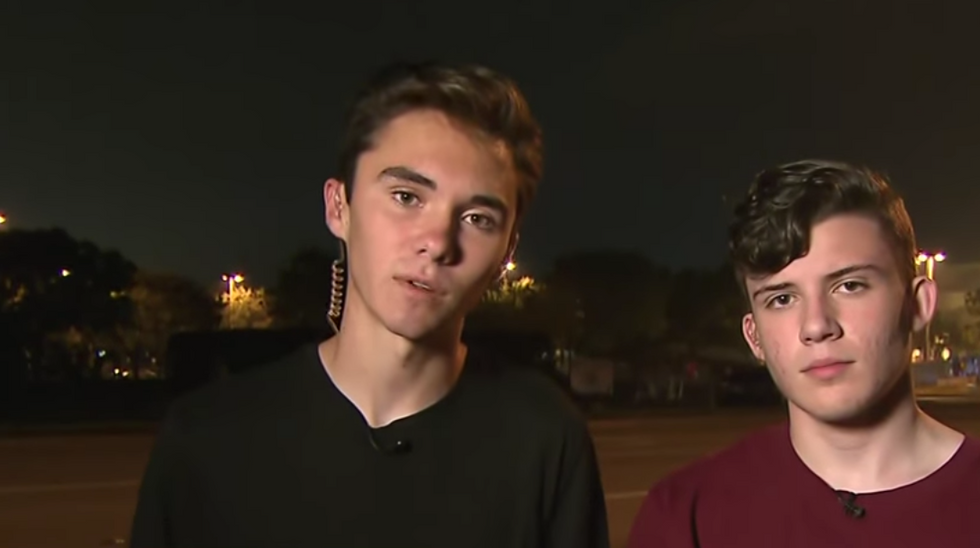53 years ago, around 600 people walked across a bridge just outside Selma, Alabama. They were met by tear gas, nightsticks and violence—all from state troopers whom had come already wearing riot gear. When told to disperse, the marchers did not waver. They stood their ground. 600 people stood, unarmed and alone, on the Edmund Pettus Bridge, staring the troopers straight in the eyes, and they did not move.
Bloody Sunday showed America a level of moral strength and bravery that it had never seen before. Every single man and woman who marched that day, from Hosea Williams and John Lewis to the many whose names are lost to history, should be regarded as a hero. As for their strength, their bravery? Most of us cannot come close to even approximating it.
However, that is exactly the standard to which we must hold ourselves. Real change demands courage. It demands strength. Real change demands real action. If we want to make real change we must be unapologetic in our convictions.
Today’s movements are, for the most part, not equivalent to the Civil Rights movement, but they are informed by the standard it set. This holds true for the modern push for gun regulation. On Wednesday, March 14th, students nationwide will leave their classes and walk out to protest the status quo that leaves their lives in danger. For these students, thoughts and prayers are no longer enough. The time has come for action and speech.
Our own Johns Creek High School students will be walking out on Wednesday. Why? Students are afraid in their own schools. We want change. What change do we want? Well that’s a little trickier. The Johns Creek walkout is designed to be all-inclusive. It takes no policy position. On its face, this seems fantastic, a unifying event open to all who want change. But what is its real purpose? We don’t know.
In focusing on numbers, on accessing everyone, the protest has lost its impact and diluted its own message. It rose from a national push for stricter gun legislation. Today, it has divorced itself from the national movement completely-- the student leadership has instructed its members that they are not to even use the word “gun” when speaking in the protest. This is an act of little more than entitlement and moral cowardice.
Taking a real, concrete stand puts us at little to no risk. The school cannot restrict our speech itself-- Tinker v. Des Moines and Morse v. Fredrick ensure that. The county has even agreed to accommodate the time and provide us with a space. The schools around us have all maintained a strong message in their own plans to walk out. Why haven’t we? Nothing more than fear of backlash from our peers has stopped us.
We have a responsibility to stand up and take a stand. Mass school shootings like the one in Parkland often happen in affluent, suburban communities like ours. Johns Creek is Parkland. Johns Creek is Columbine. Someday, the rest of the country could be sending thoughts and prayers to the students of Johns Creek High School in Georgia. We have a moral responsibility to take a stand and ensure that this never happens.
John Lewis, civil rights hero, once said that we should get in “good trouble, necessary trouble.” We risk next to nothing if we say something of substance regarding gun legislation. We risk no punishment. We risk amassing a smaller crowd. We risk starting an honest conversation about gun legislation and school safety. The trouble we may get in to is nothing more than the judgement of our peers, and it is a necessary trouble. How can we ever look back on the heroism of activists throughout history, be it the civil rights movement, the women’s movement, the anti-war movement, knowing that we did not take a stand when we had so little to risk and they had so much?
Now is not the time to abandon the gun control debate. Now is the time to bring the gun control debate into the light. For those of you who fear partisanship, it’s not a partisan issue. Politicians and constituents alike on both sides support restriction on bump stocks, stronger background checks. Our lives are not partisan. We shouldn’t ignore an avenue for change simply out of fear that some of our peers may oppose it. We’re here to lead, not follow. If we are going to lead, let’s lead. If we are going to protest, then let’s protest. Let’s have purpose, import, urgency when we speak. Let’s take a stance. Let’s make change. Let’s clearly say what we intend to change. Opinions and leadership mean nothing if they are private. Let’s make them public. We owe it to ourselves and to all who came before us. Now is the time for our own small measure of moral fortitude. Don’t throw it away.




















 sunrise
StableDiffusion
sunrise
StableDiffusion
 bonfire friends
StableDiffusion
bonfire friends
StableDiffusion
 sadness
StableDiffusion
sadness
StableDiffusion

 purple skies
StableDiffusion
purple skies
StableDiffusion

 true love
StableDiffusion
true love
StableDiffusion
 My Cheerleader
StableDiffusion
My Cheerleader
StableDiffusion
 womans transformation to happiness and love
StableDiffusion
womans transformation to happiness and love
StableDiffusion
 future life together of adventures
StableDiffusion
future life together of adventures
StableDiffusion





















